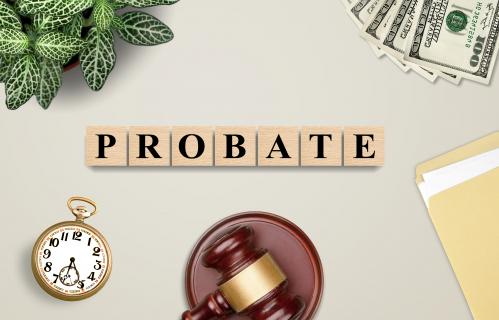When a loved one passes away and leaves behind real estate, the executor or administrator often faces a complex task. One of the biggest challenges arises when the property is occupied by tenants. In such situations, selling real estate under Texas probate law becomes a careful balancing act between legal obligations to the tenants, estate beneficiaries, and potential buyers. Understanding the nuances of this process is crucial to avoid complications and ensure a smooth transition of ownership. This article explores everything you need to know about selling real estate with tenants in possession under Texas probate law, providing insight into the responsibilities of an executor or administrator, tenant rights, legal requirements, and practical tips for navigating this challenging process.
The Intersection of Probate Law and Tenancy
In Texas, probate law governs how a deceased person’s estate is handled and distributed. When a property is part of the estate, and tenants are living there, both probate and tenant laws come into play. This means the executor or administrator of the estate must not only follow probate procedures but also ensure compliance with landlord-tenant laws.
What is Probate? In simple terms, probate is the legal process through which a deceased person’s estate is distributed. This can involve validating the will, paying off debts, and distributing remaining assets to the beneficiaries. When real estate is involved, the executor (if there’s a will) or administrator (if no will exists) oversees the property’s sale or transfer. This can become more complicated if tenants are currently occupying the property.

The Role of the Executor in Probate
The executor or administrator plays a pivotal role in managing the estate’s assets, including real estate. This person has the legal authority to sell the property, pay off debts, and distribute proceeds to the beneficiaries. However, when tenants occupy the real estate, the executor must carefully navigate the process to respect tenant rights and fulfill their duties.
Responsibilities of the Executor
- Managing the Property: The executor is responsible for maintaining the property while it’s still part of the estate. This includes handling repairs, collecting rent, and ensuring the property complies with local regulations.
- Notifying Tenants: If the property is going to be sold, tenants must be notified. In Texas, tenants have rights under the Texas Property Code, which includes the right to remain in the property for the duration of their lease.
- Selling the Property: The executor can list and sell the property, but the process may be affected by the presence of tenants. Buyers may request vacant possession, and negotiating with the tenants could be necessary.
- Distributing Proceeds: Once the property is sold, the executor must distribute the proceeds according to the terms of the will (or by Texas intestacy laws if no will exists).
Tenants’ Rights Under Texas Law
When selling a property with tenants in possession, it’s important to remember that tenants have rights that are protected by Texas law. Just because the property is part of a probate estate doesn’t mean that the tenants lose their legal protections.
Key Tenant Rights

- Lease Continuation: In Texas, the death of a landlord does not automatically terminate a tenant’s lease. If a tenant has a lease in place, the new owner of the property, whether an heir or a buyer, must honor that lease until it expires.
- Notice Requirements: Tenants are entitled to proper notice if there are any changes related to their tenancy. If the property is being sold, the tenants must be informed, and if the new owner intends to terminate the lease after its expiration, they must provide adequate notice.
- Eviction Protections: Texas law offers protection against wrongful eviction. Even if the estate is sold during probate, tenants cannot be forced to leave before the end of their lease unless they violate its terms. In the case of a month-to-month lease, tenants must be given at least 30 days’ notice to vacate.
Challenges When Selling Real Estate with Tenants in Possession
Selling real estate with tenants in possession during probate presents several challenges that both the executor and potential buyers need to consider. While the property may be an attractive investment for some buyers, others may be deterred by the complexities involved with taking on tenants.
1. Lease Agreements: A property with a long-term lease may be less appealing to buyers who want to occupy the home immediately or make modifications. On the flip side, buyers who are real estate investors may welcome an income-generating property.
2. Access to the Property: In most cases, tenants are required to provide reasonable access to the property for inspections. However, tenants have the right to privacy, and the executor must give proper notice before entering the premises. Coordinating access can be challenging, especially if tenants are uncooperative or concerned about the sale.
3. Condition of the Property: Sometimes, tenants may neglect the property, leading to deterioration that can affect the sale price. Executors must weigh the cost of potential repairs against the timeline of the probate process and any ongoing obligations to maintain the property.
4. Vacant Possession Requests: Some buyers may request that the property be delivered without tenants. This means the executor would need to negotiate with the tenants to leave before their lease expires. Offering financial incentives or agreeing to cover moving costs are common strategies, but this can complicate and delay the sale.
Legal Considerations for Selling Real Estate During Probate
Selling real estate with tenants in possession during probate is a legally sensitive process. As such, it’s essential to follow the correct procedures to avoid liability and ensure the sale is valid.
Court Approval for Sales: In some cases, selling real estate during probate requires approval from the probate court. If the property sale is being contested, or if the executor is unsure about the terms of sale, seeking approval can provide a layer of legal protection.
Clear Title Issues: One of the major hurdles in selling probate real estate is ensuring the property has clear title. If the decedent’s debts have not been paid, creditors may place liens on the property, complicating the sale. It’s the executor’s responsibility to resolve these issues before selling.
Dealing with Multiple Heirs: In situations where multiple heirs are involved, disagreements over the sale of real estate can arise. Executors must ensure transparency throughout the process and consider mediation if conflicts occur between heirs.
Tips for Selling Probate Real Estate with Tenants in Possession
Successfully navigating the sale of probate real estate with tenants in possession requires careful planning and a clear understanding of both probate and tenant laws. Here are some practical tips for executors:
1. Communicate with Tenants Early: Open communication with tenants from the start can make the process smoother. Let them know about the probate process, the potential sale, and their rights. Clear communication can prevent misunderstandings and foster cooperation.

2. Review Lease Agreements: Carefully review all existing lease agreements to understand the terms and expiration dates. This will help you determine whether you need to market the property as a rental property or if it’s feasible to negotiate with tenants for an early move-out.
3. Work with a Probate Realtor: Selling a probate property with tenants is more complex than a typical real estate transaction. Consider working with a realtor who specializes in probate sales. They can help market the property appropriately, negotiate with tenants, and find buyers who are comfortable purchasing the property.
4. Offer Incentives to Tenants: If you need the tenants to move out before their lease ends, consider offering incentives. Some incentives include financial compensation or assistance with moving costs. This can help expedite the process and avoid legal battles.
5. Stay Organized and Document Everything: Keep meticulous records of all communication with tenants. You should also keep records of any repairs or maintenance work done on the property. This can protect you if any disputes arise later and ensure that the estate is managed properly.
Conclusion: A Complex but Navigable Process
Selling real estate with tenants in possession during Texas probate presents unique challenges. However, it is entirely possible to do so while respecting both tenant rights and the probate process. Executors and administrators must balance their legal obligations to the estate’s beneficiaries with compliance with Texas landlord-tenant laws.
By staying informed, communicating effectively with tenants, and working with professionals when needed, executors can navigate the complexities of selling probate real estate with tenants in possession while ensuring a smooth transition of ownership. The key is preparation, understanding the legal landscape, and fostering cooperation between all parties involved.








